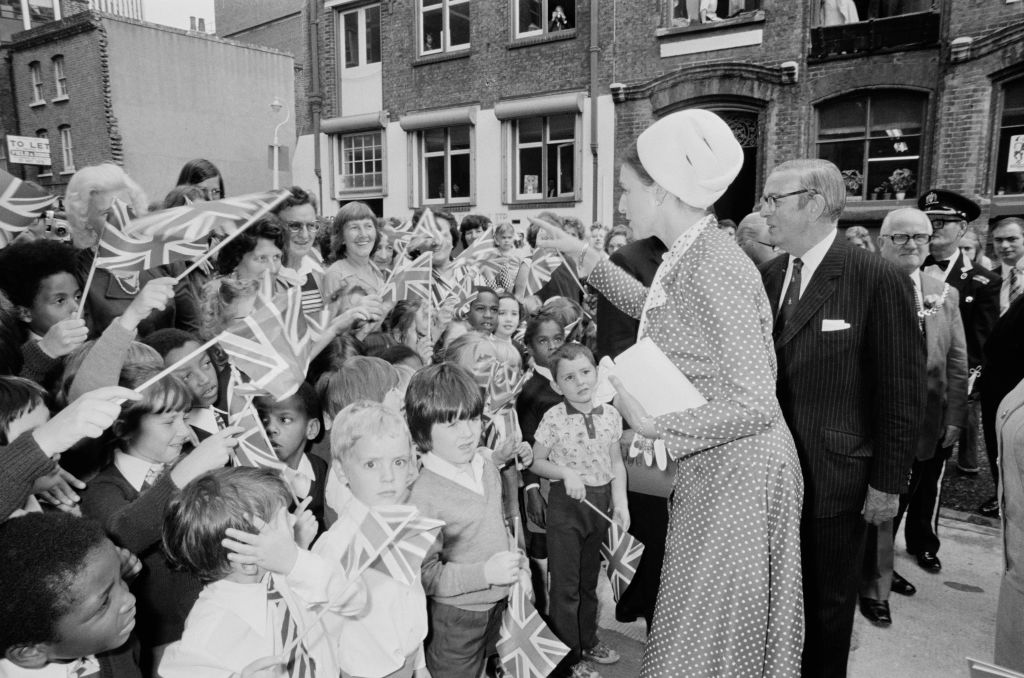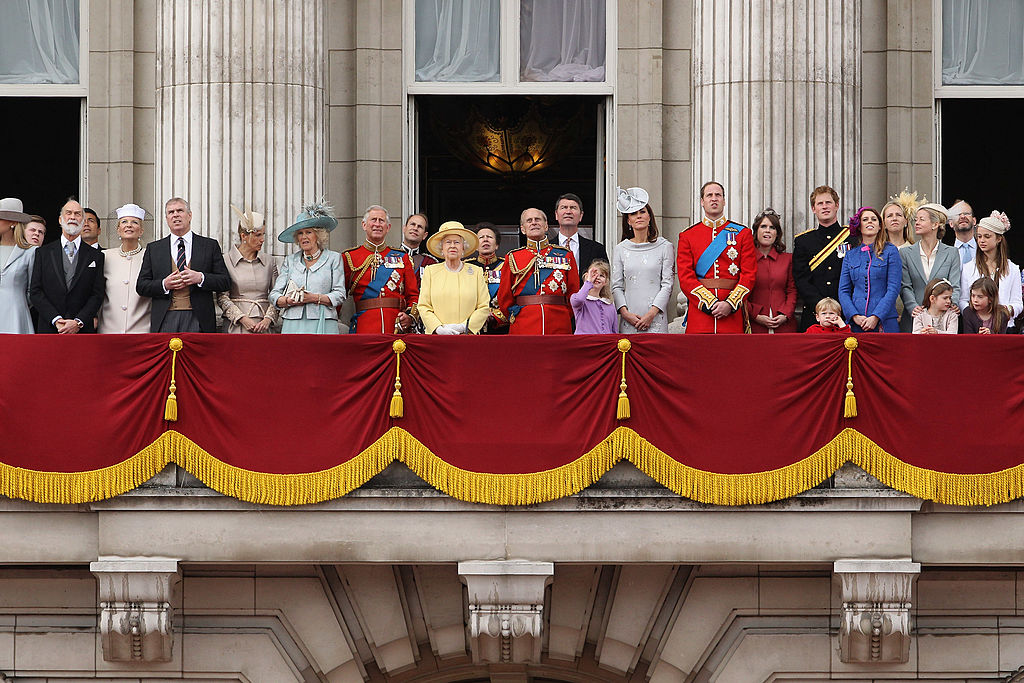On a scaffold hung with black cloth, on a freezing January day in 1649, the instinct for sumptuousness died in these islands. It was killed alongside Charles I, kingly excess and belief in divine right and, with intermittent exceptions, has never recovered. And so when, time and again since September, we’ve heard about our new King’s plans for downsizing the monarchy, the bulk of the population has calmly nodded its assent. Trim, slim, streamline, skimp. Time to dispense with peripheral royal family members! Farewell to the jostling chorus line of the Buckingham Palace balcony of yesteryear, all oversized hats, Ruritanian frippery and excitable small children! Away with the hangers-on!
A large working family accomplishes more than the same family halved in size; it can be in more places simultaneously, which is important if the monarchy is to continue to act as a unifying force
Good news? I wonder. After all, who are these mostly unassuming folk occupying the balcony’s furthest reaches and what have they actually done to merit the ignominy of being ‘downsized’?
The ‘hangers-on’ in question are the so-called ‘minor royals’, men and women of royal blood whose chances of inheriting the throne are nevertheless impossibly remote: those royal relatives whose identity flummoxes pub quizzers. Among them is a clutch of cousins of the late Queen. Grandchildren like her of George V, the Duke and Duchess of Gloucester, the Duke of Kent and his sister Princess Alexandra have each notched up a lifetime of royal service: between them, this venerable quartet – average age 81 – has carried out 200 years’ worth of public appearances.
The longest-serving of the four, 86-year-old Princess Alexandra, undertook her first engagement – for the Red Cross – in the summer of 1954, at the age of 17, two years after she agreed to become patron of British Red Cross Youth. She has continued to work for the charity, as well as the more than 100 organisations of which she is patron or president, ever since. In 1959, on a tour of Australia, the Princess carried out what has subsequently been seen as the forerunner of the royal walkabout. More than a decade later, it was adopted as standard practice by more senior royals. Minor by name, then, but not necessarily in impact.

My hope is that the coronation offers these kingly cousins some of the gilt-trimmed recognition they deserve. Potentially denied a privileged viewing platform for any future palace flypast by carping public opinion and a modernising monarch, the minor royals ought surely to receive some acknowledgement of jobs well done. At the time of writing, Buckingham Palace had yet to detail the exact nature of the royal cousins’ part in Saturday’s ceremony, though all those who remain working royals will take part in the coronation procession.
The royal family is a hierarchical organisation. Its members understand their place in the pecking order. To a young Diana, Princess of Wales, Princess Michael of Kent – the wife of the late Queen’s youngest royal cousin, who has never carried out royal duties in the sovereign’s name – pointed out that while Diana had married the family’s top-ranking male, Princess Michael had married its least important. It was not a protest, simply a recognition of the Windsor status quo, with all the expectations, benefits and drawbacks implied.
The Carolean monarchy needs to inspire confidence, affection and respect, while offering value for money and evidence of probity. None is guaranteed by downgrading some of its kindliest performers
Neither the Duke of Kent, Princess Alexandra nor the Gloucesters has ever jibbed at their position in the royal reserve team. The Duke of Gloucester enjoyed a brief period of celebrity several years ago, after a documentary showcased his flagging small talk. On a visit to Croydon to open a school IT department, watching a lacklustre dance display in a gymnasium, the Duke enquired of a teacher whether or not the roof was insulated. Boredom, Elizabeth II told a French president, was potentially part of the royal lot. ‘There are things that interest you and others that don’t,’ was the Duke’s verdict. But he was clear of the positives of his morning in that charmless gymnasium. His own presence bestowed the ‘pats on backs’ that the late Queen considered an essential aspect of her public life, freeing up Her Majesty to pat backs elsewhere. That there was little fanfare surrounding the visit did not trouble the Duke. Crowds, he acknowledged, were the prerogative of more senior royals. His was a supporting role.
In an era of self-assertion and social media-fuelled narcissism, there are those who struggle with this sort of tranquil acceptance of being the runner-up. The anger merchants whose furious – and, in a literal sense, hateful – comments provide a toxic coda to every online article about the royal family dismiss the possibility of royal humility. No family has a monopoly on sweetness and light, least of all the Windsors, as recent years have shown, yet throughout the late Queen’s long reign a working party of Her Majesty’s cousins demonstrated without stridency an alternative version of that doctrine of service which earned Elizabeth II such widespread admiration. In these royal lives, duty garners limited public recognition, though the Queen herself consistently made clear her esteem for her quiet cousins. The satisfaction needs to be in the job itself and a conviction of its value as part of the broader programme of today’s ‘welfare monarchy’.
It doesn’t take a genius to see that, in terms of these minor royals, a slimming-down of the monarchy is an inevitable consequence of passing time. Advancing age and infirmity will deliver the P45s with which the King has no need to trouble himself. The question is what happens next, and it’s a valid one. A large working family accomplishes more than the same family halved in size; it can also be in more places simultaneously, which is important if the monarchy is to continue to act as a unifying force across the United Kingdom and maintain its role in the Commonwealth. Like every national institution, the Carolean monarchy needs to inspire confidence, affection and respect, while offering value for money and evidence of probity. None is guaranteed by downgrading some of its kindliest performers. The coronation spotlight will shine most brightly on the sovereign and his consort. I for one will also give a hearty huzzah for those more distant from the throne.






Comments